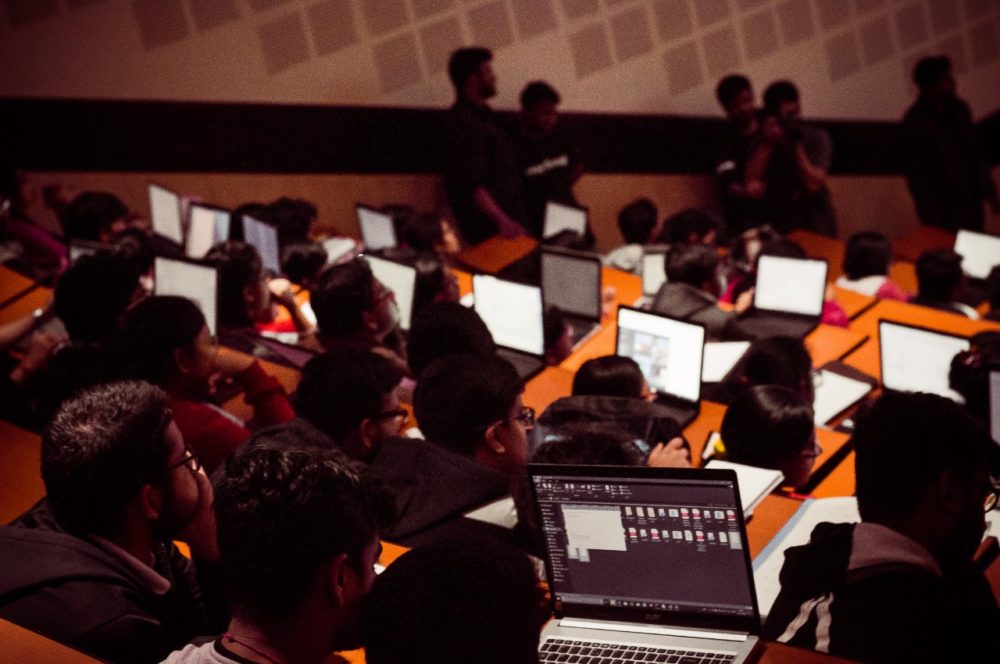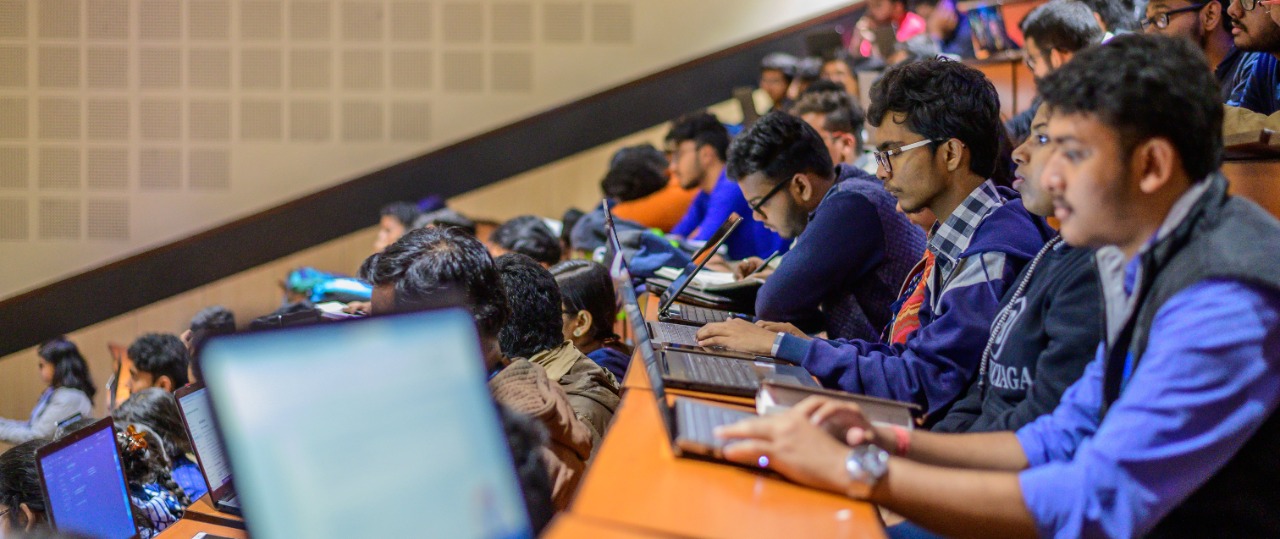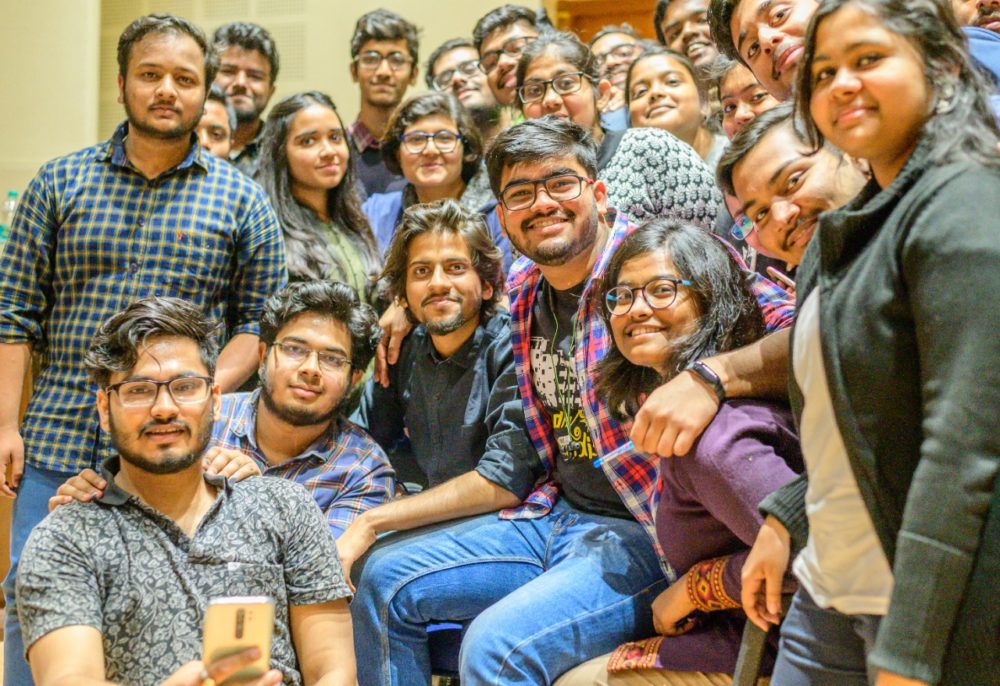Hey guys! It’s been a long time since I last posted. I hope everyone is doing great! Many people were asking me personally about my experience in different Interviews. So, I thought let’s write about my Persistent Interview experience in this article. It will reach a much wider spectrum of students, and it will also save you guys a lot of time.

Selection Process
You can divide the persistent Interview and selection process into 3 rounds.
- Online Exam (Elimination Round)
- Technical and Managerial Interview (Online or Offline)
- HR Interview (Welcome to persistent)
Persistent Interview Details
Online Exam
The most important round for the Persistent Selection process is the online exam. This is the round where most of the elimination happens. The cut-off for the exams is pretty moderate, but the exam does not follow the question patterns of other IT companies. In most companies, you will have Aptitude, math, English Grammar, and either basic coding questions or pseudocode-related questions. But for persistent, you will get questions from computer science / IT-related subjects. You can expect questions from DBMS, OS, Networking, Computer Organizations, Data Structures, and Algorithms.
There will be 2 (or more) coding questions, which will be easy or moderate level. I don’t exactly remember what questions appeared during my exam, as it has passed a long time since then. But I can vaguely remember one question was related to array manipulation and another was related to string. They were pretty decent problems, almost everyone who is practicing coding from leetcode or hackerrank can solve those easily.
Persistent Technical and Managerial Interview
After you have appeared for the exam, there will be quite a long pause. You may have realized already that companies don’t hire from one college only. Multiple hiring processes are going on simultaneously. While you’re waiting for your much waited persistent interview, someone is brainstorming to solve his coding problem in some other city. You have to understand the situation and be patient about the result.
Once you are shortlisted for the interview, maybe after 1 to 1.5 months, it’s your time to shine. Well, in my case, I waited about 4.5 months to get the interview call. The first round was the core technical round. Most probably it was on the Amcat portal, which has a video calling feature just like Zoom or Teams with a code editor. After the initial greeting stuff, The interviewer asked me to write a code to print a pattern. It was a pyramid pattern. I asked some simple questions like:
Is there any language restriction? Do I need to write the whole code or just the logic part? Etc.
Tackling the first coding question
He told me to write the whole code and run it to debug. Which was a bit easier for me, as I can debug the code by checking the output. It took me about 8-12 mins to write the code in C and debug it to get the asked result. He asked me why am I using C instead of CPP. My obvious answer should have been, “Cuz I don’t know CPP very much. And I don’t want to answer unnecessary questions related to CPP afterward.” But I can’t say that, Can I?
So I said, “The problem was quite easy. So I could’ve solved it using CPP or Java as well. But I’m used to coding in C or Java. And as I have to write the whole code, the Java code would take a bit more time compared to C. That’s why I’ve chosen C.” He said, “Fair Enough! Then write the code to add an element to a linked list in C.”
Tackling the second coding question
This question worried me a little. I haven’t been coding in C since 3rd year. I was using Java to solve most of the problems at that time. So I started imaging the solution in Java and tried to convert it to c. I took a Structure instead of class, and ‘pointer’ instead of a class instance.
//Java Code
class Node {
int value;
Node next;
}
//C code
struct node {
int value;
struct node *next;
};I continued the process in my mind. And that’s why I made a mistake. To access a value in Java we write the code as “node.value” but in C the code is “node→value”. I wrote the whole code using dot(.). The interviewer asked me if it was the right way to access the values from structure? I realized my issue and quickly changed the code. I hit the run button and the code worked. This code took me about 20 mins as I had to cover some edge cases and I had to recall the way to write structure-related code in c.
The Quick-fire round
After the codes were done, The interviewer started asking me questions from DBMS, OS, and OOP like a quick-fire round. He asked me about 12-13 questions in 15 minutes. The questions were basic, but it was an intense round. I answered all the questions according to my ability. And he was quite happy about it. At the end of the interview, he told me, “I’m giving you a go-ahead for the next round”. I could not ask for any feedback or any other questions.
Restless Day: Managerial Interview
The Technical interview went around for 50-55 mins. So, I thought I can call it a day and sleep a bit. But just after having my lunch, I got a call from the Persistent Hiring Manger, saying I will have my Managerial Interview from 3:00 pm today. Even though I was very unprepared for it, in my mind I went “Jo hoga, dekha Jayega!”. This time the interviewer was quite friendly, and he asked me all kinds of questions about myself and my life. He asked, “How was your college life? Why did you choose Computer Science? What programming languages do I like ? ” Etc. Then he asked me to solve 2 coding questions. This time he asked to write the logic part only.
I can’t recall the exact questions right now. But, I’m pretty sure one was on Hash Map and another was on Tree. It took me about 20-25 mins to read the questions and solve them. He was pretty happy about the approach I took to solve the questions. And asked me If I have any questions. I asked for feedback and asked about current technologies persistent is working on. I also asked him about my job profile, what kind of tasks are generally assigned to freshmen, and future opportunities. It was a nice conversation with the interviewer. There were 1 or 2 OOP-related questions, as I used Java, to write the code. Other than that, no technical question was asked. He was a genuine guy and I had an amazing experience. He gave me a hint of “go-ahead” at the end, which made me a ‘Happy Soul’!
Persistent HR Interview
HR round is basically a formality in the persistent Interview process. I’ve not heard that anyone got rejected from persistent from the HR Interview round. I had an initial bad experience in the beginning. It was not related to the interview itself. The Hiring HR took sick leave on the day of the interview. Now, I didn’t receive any mail notifying me about that. After waiting for 40 mins in the meeting, no one joined, so I left the meeting and emailed the POC. They called me about an hour later and told me about the incident. My interview was rescheduled to a different date with a different HR.
A missed Opportunity
Initially, my HR round was scheduled for the first week of February. At the same time, some of my friends were going to Sikkim, and they asked me to come along. But due to the HR Interview, I said no to them. And Now that my interview was rescheduled, I was cursing my luck and persistent each time someone was asking me about the interview or the trip.
HR Interview Day
My interview was scheduled for 11:00 am, and It was the end of February. So I was quite chilled at the time. I was not feeling any pressure as I already had job offers in my hand and the technical round went pretty smoothly. I was confident. The HR was 15 min late, as the HR who was going to take the interview tested covid positive. And Yes! I almost forgot to mention, It was peak corona days going on. That was one of the reasons to say “No” to the Sikkim trip. The HR who was taking my interview was a freshman (or freshwoman, whatever you prefer) as well. She joined Persistent in 2020.
She asked me about my college life, what new things I learned from college, my final year project, etc. The most interesting question she asked was, ‘Tell me something that is not in your CV’. I was not prepared for this type of question, I am not a textbook guy who prepares for an HR round. But thankfully, at that time I was working with a team of 15 people to launch a college magazine, called ‘Ingenium’. If you’re interested, you can read more about that here. I talked about that. I told her about how I’m trying to improve my leadership skills in that project, how I’m managing the team, and How I’m trying to build something new.
It was an interesting round. She asked me different types of questions, starting from projects to personal life to what I’m dreaming to do. And there was no question, other than the one I mentioned, that I had to think a bit to answer.
Tips
How can I end the blog without leaving some tips for my beloved readers! Here are some tips that I hope will help you in any Interview, not just in a persistent interview.
- Know your subjects: Don’t forget to refresh your memory about stuff that you’ve read in your 3rd or 2nd years.
- Be clear about your project: Unless you’re a sweet, poisonous liar, do not mention something that you have not done or personally worked on in your project.
- Be cautious: If you’re not clear about the question, don’t try to divert from the topic. Ask questions to clarify your doubts. The interviewer will like that.
- Be active in your college days: If you do not want to read articles like “How to ACE an HR interview” the day before your interview, be active in your college activities. It helps you to grow as a person. And it helps you to come up with your own version of answers, instead of mindlessly copying brainly answers.
- Practice coding in a normal editor Instead of an IDE: The interviewer may ask you to write code in notepad or in their online editor and explain or dry run the code. Practice that with friends. Instead of CC, focus on logic building and development.
- Learn new stuff: Learn new technologies every time you have any chance. Study how they work, what future scope they have, and which companies are using them.
I hope this is enough. Let me know in the comments if you have any questions. I will try my best to answer them ASAP. See Ya!!


